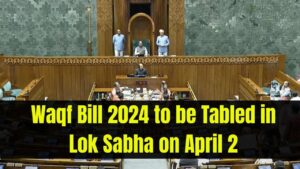India

Why the Unified Pension Scheme is Facing Rejection from Government Employees and Teachers
Government employees and teachers are rejecting the Unified Pension Scheme (UPS) due to its contributory structure, investment risks, and lower assurances compared to the Old Pension Scheme (OPS). This article explains why UPS is facing opposition, compares it with OPS, and provides insights into its eligibility, benefits, and concerns. Find out if the UPS is the right choice for government employees in India.

PPF Magic: How ₹5,000, ₹9,000, and ₹11,000 Monthly Can Turn into Lakhs in Just 15 Years
Discover how investing ₹5,000, ₹9,000, or ₹11,000 monthly into a PPF account can turn your savings into lakhs in just 15 years. Learn about the power of compounding, tax-free returns, and how to maximize your PPF investment for long-term financial security.

₹12,000 Women’s Empowerment Scheme Launched By Modi Government – Check Application Deadline & Other Important Details
Explore the Mahila Samman Savings Certificate, offering up to ₹2,00,000 at 7.5% annual interest. Learn about eligibility, benefits, and how to apply before the March 2025.

Cash Deposit Rules: How Much Cash Can You Keep in Your Bank Account? RBI Guidelines Might Surprise You
This article explains the cash deposit rules set by the RBI for individuals and businesses. Learn about deposit limits, PAN requirements, and reporting rules for transactions over ₹10 lakh. Understand how to avoid penalties, manage cash deposits efficiently, and follow the law to stay on the right side of financial regulations. Whether you’re an individual or running a business, this guide offers practical insights.

Thousands of Employees Are Missing Gratuity Because of This Rule
A recent Supreme Court ruling could leave thousands of employees without their hard-earned gratuity. Find out what this new rule means for your future benefits, how you could be affected, and what steps you need to take to protect your rights before it’s too late!

SCSS vs FD: Which Is Better for Your Money in 2025? Don’t Invest Until You Read This!
Think FDs are the safest bet for your retirement? Think again. Discover why Senior Citizens’ Savings Scheme (SCSS) might just outsmart traditional FDs in 2025. With new rates, tax perks, and hidden clauses, this detailed guide will open your eyes—and possibly save you lakhs. Don’t risk your savings until you’ve read this expert breakdown!

Man discovers forgotten Reliance shares bought 37 years ago for ₹30, now valued at ₹12 lakh
A Chandigarh-based man discovered old Reliance Industries shares purchased 37 years ago for just ₹30, now worth a staggering ₹12 lakh. Due to stock splits, bonuses, and compounding growth, his investment multiplied significantly. If you have old physical share certificates, you could be sitting on hidden wealth. This article provides a step-by-step guide on checking, claiming, and dematerializing old shares to unlock their value.

How to verify outstanding loans linked to your PAN card? Here are 3 easy methods
Wondering if you have any outstanding loans linked to your PAN card? This guide provides simple ways to check and verify your loans through credit reports, FinTech apps, banking portals, and the RBI’s centralized database. Learn how to prevent fraud, manage your credit score, and resolve discrepancies quickly. Stay financially secure with these expert tips!

Modi Government Extends PM Internship Scheme Deadline; Apply by April 22
The PM Internship Scheme offers young individuals a chance to gain valuable work experience with top Indian companies. With a monthly stipend, hands-on training, and networking opportunities, it’s a fantastic way to jump-start your career. Apply now before the extended deadline of April 22, 2025!

Big Update: Waqf (Amendment) Bill 2024 Set for Lok Sabha Tabling on April 2
The Waqf (Amendment) Bill 2024, set to be introduced in the Lok Sabha on April 2, 2025, promises significant reforms in the governance and management of Waqf properties in India. The bill aims to enhance transparency, restructure Waqf boards, and address issues of mismanagement, ensuring that Waqf assets benefit the public more effectively.






